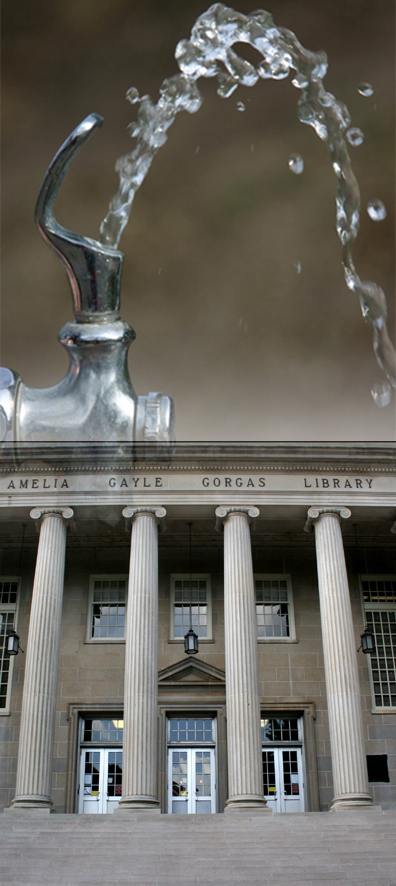Well, it is all pretty fun to me, even when I am dying (no comments, no laughter, no answers, no questions), as I know that most anything in the classroom can be turn around and headed in the right direction in a heartbeat.
My latest, favorite image is “How is a library like a drinking fountain?” My thought process related to this image is that water must (in these lucky United States) go through an exhaustive process of collection, filtration, purification, sanitization, and finally, safe delivery before it ever reaches your favorite water fountain. That is, in this country, we can approach a water fountain and be pretty doggone confident that we are going to get a cool, clear, pure drink.
Relating this process to the selection and “purification” process that goes on concerning information in a modern library is an easy leap. Students immediately say “it’s free” (if they only knew!!!), “you can drink all you want”, or “it’s pure”. You can extend this image and process as far as you like, given cooperative students (the final, best gift). I was and am thinking about no specific pedagogical method, tho analogy and imagery have long and dependable histories in teaching critical thinking skills. Asking anyone how x is similar to y always requires a thinking process on the part of the student, and that is active learning and participation. Simple. No props, no whiz bang, just get the brains in gear.
I admire and envy folks who have great (and hip) teaching ideas and tools. My brain sticks to the facts, and that is great when the facts are needed. I need to branch out, and rubbing shoulders with this crowd, it is bound to happen.
All good things, gisssteve
